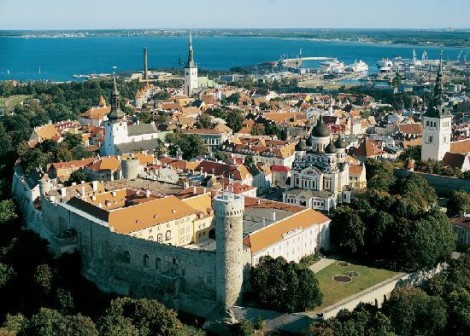 On April 23rd and 24th, 2014, an e-Infrastructure concertation meeting has been organised in Tallinn by DCH-RP project (Digital Cultural Heritage – Roadmap for Preservation) to discuss in more detail the strategy and recommendations presented in the DCH-RP roadmap study and the intermediate roadmap and how to prepare for future cooperation.
On April 23rd and 24th, 2014, an e-Infrastructure concertation meeting has been organised in Tallinn by DCH-RP project (Digital Cultural Heritage – Roadmap for Preservation) to discuss in more detail the strategy and recommendations presented in the DCH-RP roadmap study and the intermediate roadmap and how to prepare for future cooperation.
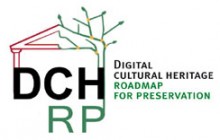
Following the fruitful collaborations set up during the implementation of the former DC-NET project, including the signature of a series of MoUs, contacts between DCH organisations and e-Infrastructures were continued, expanded and developed under DCH-RP via a series of experiments (the Proof of Concepts), a virtual platform and small workshops held at different occasions.
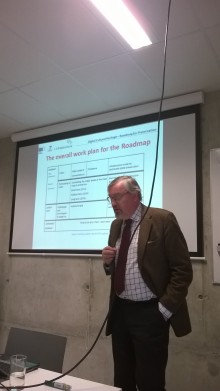 The workshop was very successful as all the speakers and the participants provided their feedback on the intermediate version of the Roadmap, both from the point of view of the memory institutions (on the first day) and of the e-infrastructure providers (on the second day). This feedback will be analysed and took into account in the final version of the Roadmap which will be published in Semptember 2014.
The workshop was very successful as all the speakers and the participants provided their feedback on the intermediate version of the Roadmap, both from the point of view of the memory institutions (on the first day) and of the e-infrastructure providers (on the second day). This feedback will be analysed and took into account in the final version of the Roadmap which will be published in Semptember 2014.
Here below you can find and download all the presentations that were delivered during the 2-days event. A detailed report is being produced and it will be available on the DCH-RP showcase in the coming weeks.
Introduction to the roadmap (B. Justrell): download PDF

Day 1 (23/04/2014): DCH institutions views on the Roadmap (download all presentations)
- Patrimoine Numérique (M.V. Leroi): download PDF
- Biblioteca Nazionale Marciana (M. Messina): download PDF
- Royal Institute of Cultural Heritage (H. Arijs): download PDF
- Ministry of Education and Research (E. Stenskold): download PDF
- National Archives of Estonia (K. Aas): download PDF
- Digital Heritage Netherlands (M. De Niet): download PDF
- DARIAH and CNR (V. Virgili): download PDF
- Silesian Digital Library (R. Lis): download PDF
- Lithuanian Art Museum (S. Bagdonas): download PDF
- Digital Preservation Coalition (W. Kilbride): download PDF
- Culture Information Systems Centre (L. Valdovska): download PDF
- National Széchényi Library (M. Toth): download PDF
- Deutsche Kinemathek (J. Keiper): download PDF
- Discussion (chair: R. Ruusalepp): download PDF
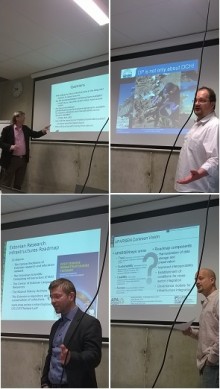
Day 2 (24/04/2014): e-infrastructure views on the Roadmap (download all presentations)
- e-IRG (L. Laaksonen): download PDF
- ESFRI (J. Dubucs): download PDF
- EENet (H. Teder): download PDF
- EGI.eu (M. Dresher): download PDF
- APARSEN (H. Brocks): download PDF
- Discussion (chair: T. Devenport): download PDF
Conclusions (J. Moulin): download PDF
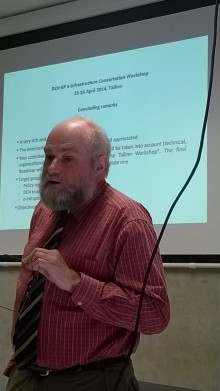 The workshop was followed by the fourth DCH-RP plenary meeting, whose main objective was to plan the editing and delivery of the final version of the Roadmap, which will be published in September in the occasion of the DCH-RP final conference as the major result of the project.
The workshop was followed by the fourth DCH-RP plenary meeting, whose main objective was to plan the editing and delivery of the final version of the Roadmap, which will be published in September in the occasion of the DCH-RP final conference as the major result of the project.
Stay tuned on www.digitalmeetsculture.net/heritage-showcases/dch-rp/ to follow the progress of the project!


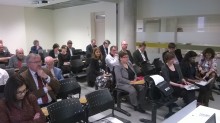

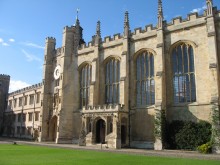
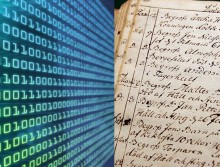
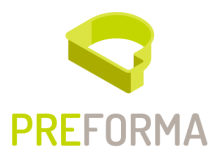 We live in a digital age we no longer commit knowledge to vellum or paper, storage solutions that have stood the test of time. Now everything is created, consumed and, hopefully, stored on computers. It is this last area that is of particular concern, how can we ensure that valuable digital information will remain accessible and usable? This is where digital preservation comes in.
We live in a digital age we no longer commit knowledge to vellum or paper, storage solutions that have stood the test of time. Now everything is created, consumed and, hopefully, stored on computers. It is this last area that is of particular concern, how can we ensure that valuable digital information will remain accessible and usable? This is where digital preservation comes in.

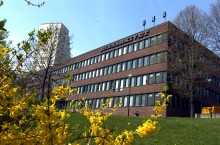
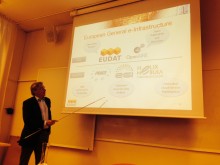
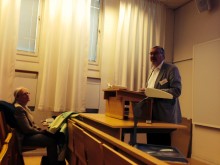
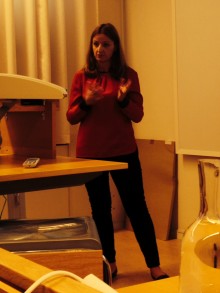
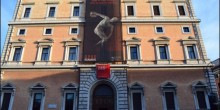
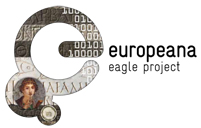 This event, event organised by EAGLE, Europeana network of Ancient Greek and Latin Epigraphy e Wikimedia Italia with the support of Soprintendenza Speciale per i Beni Archeologici di Roma, aims to serve as a platform for sharing knowledge and good practices while stimulating reflections on the role of digital technologies in the preservation and promotion of cultural digital heritage.
This event, event organised by EAGLE, Europeana network of Ancient Greek and Latin Epigraphy e Wikimedia Italia with the support of Soprintendenza Speciale per i Beni Archeologici di Roma, aims to serve as a platform for sharing knowledge and good practices while stimulating reflections on the role of digital technologies in the preservation and promotion of cultural digital heritage.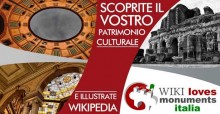
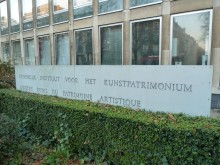
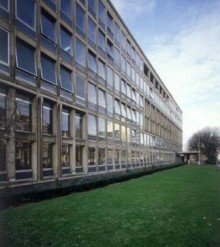 On April 4th, 2014,
On April 4th, 2014, 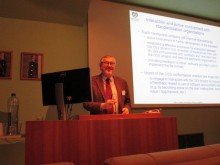 After a welcome message from Erik Buelinckx (KIK-IRPA), the project Coordinator Börje Justrell (Riksarkivet) introduced the context and the objectives of the PREFORMA project and of the pre-commercial procurement. Then, Bert Lemmens (Packed) presented the challenge brief, giving an overview of the requirements and specifications of the tender. Antonella Fresa (Promoter), the PREFORMA Technical Coordinator, followed illustrating how to get information about the tender, how to participate to the call and which are the different phases of the procurement, from the publication of the call until the evaltuation of the proposals. After a short break, the last three presentations covered how the design phase will be organised (Peter Pharow, Fraunhofer), the mechanisms which will regulate the evaluation of the prototypes (Nicola Ferro, University of Padua) and the open source approach which stands at the basis of the PREFORMA project (Bjorn Lundell, University of Skövde).
After a welcome message from Erik Buelinckx (KIK-IRPA), the project Coordinator Börje Justrell (Riksarkivet) introduced the context and the objectives of the PREFORMA project and of the pre-commercial procurement. Then, Bert Lemmens (Packed) presented the challenge brief, giving an overview of the requirements and specifications of the tender. Antonella Fresa (Promoter), the PREFORMA Technical Coordinator, followed illustrating how to get information about the tender, how to participate to the call and which are the different phases of the procurement, from the publication of the call until the evaltuation of the proposals. After a short break, the last three presentations covered how the design phase will be organised (Peter Pharow, Fraunhofer), the mechanisms which will regulate the evaluation of the prototypes (Nicola Ferro, University of Padua) and the open source approach which stands at the basis of the PREFORMA project (Bjorn Lundell, University of Skövde).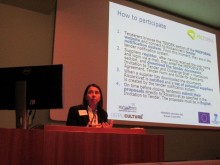 The Q&A session which followed involved many of the attendees around a number of key topics, among which: the usage scenarios to be addressed by the suppliers; the data sets which will be made available by the memory institutions participatng to PREFORMA and those that have to be provided by the tenderers; ideas on sustainability and business models; the conformancy check of the metadata associated to the digital objects; the reporting and feedback process, including the relationship with the standardisation bodies; the possibility to include in the tender other formats or processes.
The Q&A session which followed involved many of the attendees around a number of key topics, among which: the usage scenarios to be addressed by the suppliers; the data sets which will be made available by the memory institutions participatng to PREFORMA and those that have to be provided by the tenderers; ideas on sustainability and business models; the conformancy check of the metadata associated to the digital objects; the reporting and feedback process, including the relationship with the standardisation bodies; the possibility to include in the tender other formats or processes.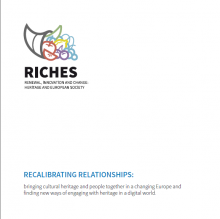
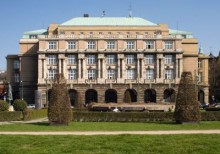
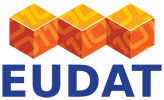 The User Forum will also be a platform to look at Horizon 2020 opportunities, in terms of outlining EUDAT’s plans for research data management planning support for projects, how collaboration with existing and new users will evolve as well as interacting with attendees on their expectations and requirements for services and support from EUDAT under Horizon2020.
The User Forum will also be a platform to look at Horizon 2020 opportunities, in terms of outlining EUDAT’s plans for research data management planning support for projects, how collaboration with existing and new users will evolve as well as interacting with attendees on their expectations and requirements for services and support from EUDAT under Horizon2020.































